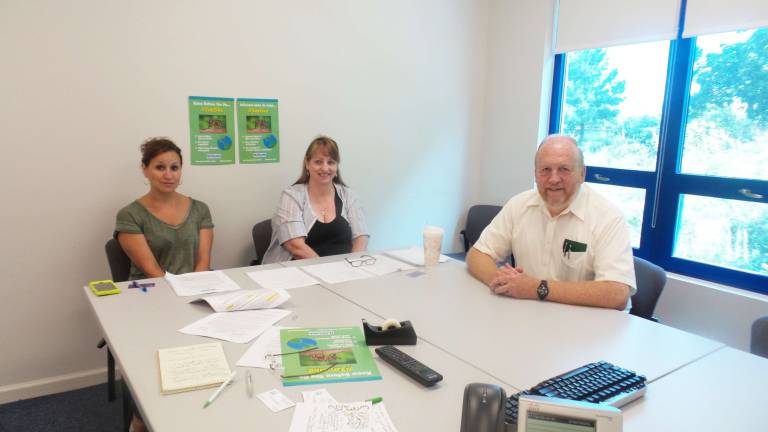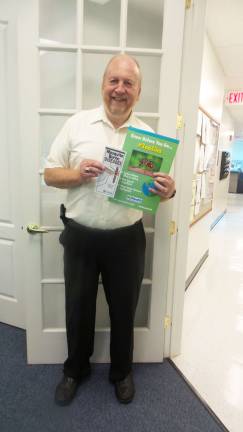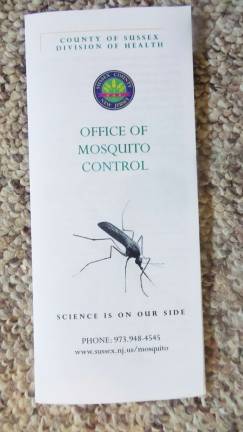'Zap Zika!' Sussex says



By Frances Ruth Harris
HAMBURG — Getting the message out is the best way to “zap Zika” in Sussex County, health officials say.
“We must not run the risk of having a child with a lifetime disability," said Emrick Seabold, administrator and health officer with the Sussex County Division of Health. "We give the information. Do something with it. Make a sensible choice. Do not travel in areas where the disease is spreading. This includes Puerto Rico and parts of Florida.”
Although the Zika virus is not especially dangerous in most cases, it has been found to cause microencephaly in utero. Microcephaly is a birth defect where a baby’s head is smaller than expected when compared to babies of the same sex and age, according to the Centers for Disease Control (CDC). Babies with microcephaly often have smaller brains that might not have developed properly.
And new research in mice suggests that certain adult brain cells thought to be critical to learning and memory may be vulnerable to infection as well.
Keeping mosquitoes away will also keep the Zika virus at bay.
The good news, says Ellen Phelps, Director of Public Health Nursing for Sussex County, is that people can protect themselves. Zika mosquitos don’t fly far, she said. They don't travel beyond the house next door.
Tracy Storms-Mazzucco, Sussex health educator, said the best way to get rid of mosquitoes is to get rid of all standing water. Mosquitoes like to reproduce in the small pools that collect in everything from bottle caps to old tires. Any tiny pool of standing water can breed mosquitoes, Phelps said.
Seabold implores Sussex residents not to travel to places where the disease is present. “Is a trip to Miami or Puerto Rico really worth the risk?” he asks.
New Jersey has just made up informational packets in Spanish and English for those traveling outside Sussex County to Zika-infested areas, Phelps said. Because the Zika virus can be spread through sex, each packet contains condoms along with insect repellent and mosquito netting, especially useful in Zika areas where people live without screens. The packets will be distributed at WIC centers and federally qualified health centers.
Sussex County’s “Zap Zika!” team says the guidelines don’t mean anything without personal responsibility.
Storms-Mazzucco said physicians meeting with patients are the front line of defense. Vaccines, which must first be tested, are in now the works, she said.
In the meantime, Sussex County is trying to get the word out. The county passed out information at the state fair. Representatibes speak to groups and make presentations.
Health officials say they are especially grateful for the Sussex County Board of Chosen Freeholders for supporting “Zap Zika!” through the purchase of mosquito traps and Zika education. The Zika team said the Chosen Freeholders' "Zap Zika" leaders — George Graham, Carl Lazzaro, Jonathan Rose and Ron Tappan — make their health program cutting edge.
But now it's up to the public.
"We give the information," Seabold said. Do something with it."
For more information or to schedule a "Zap Zika!" presentation, call Storms-Mazzucco at 973-579-0370, ext. 1233.